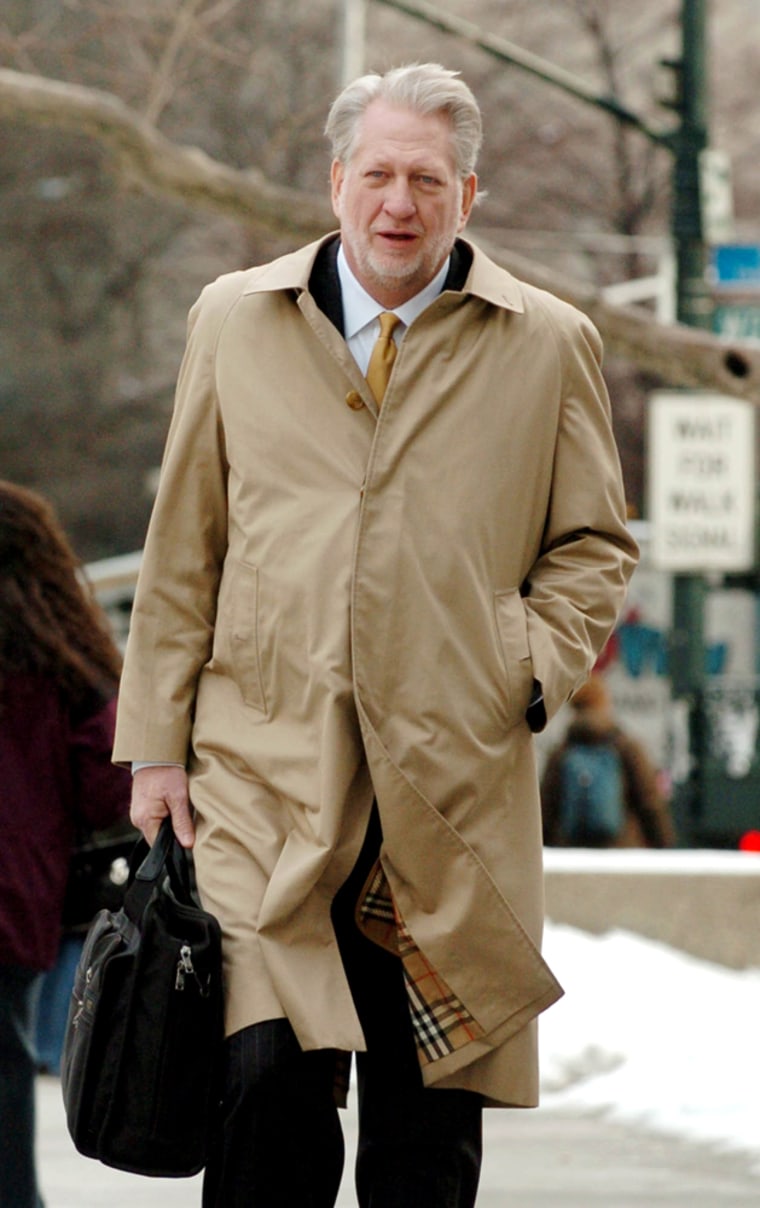A charismatic businessman who went from Wall Street superstar to untouchable almost overnight, former Worldcom CEO Bernie Ebbers turned a folksy demeanor and by-the-bootstraps biography into central exhibits in his unsuccessful defense against securities fraud charges.
By all accounts Ebbers was a self-made man who worked as a milkman, bouncer, basketball coach and motel owner before founding the company that ultimately emerged as a giant of telecommunications at the height of the industry’s bubble.
Born in Edmonton, Alberta, Bernard J. Ebbers attended Mississippi College on a basketball scholarship in the 1960s and made the state his adopted home. As he stressed in his “know-nothing” legal defense, Ebbers made grades that “weren’t too good” before graduating from the Baptist school with a degree in education.
After a stint teaching and coaching junior high basketball, Ebbers found his inner entrepreneur in the hospitality industry and eventually owned a small chain of nine motels.
As legend has it, in 1983 he and several associates used a restaurant napkin to draw up a plan for a business they called Long Distance Discount Service.
Ebbers may not have known much about accounting or technology, as he asserted at his trial, but he sure knew how to close a deal. Over the years he bought dozens of companies, including a blockbuster 1994 deal that resulted in LDDS being renamed WorldCom.
As Internet use exploded in the mid-1990s, WorldCom owned the lines that carried 20 percent of its traffic, and the company's stock grew explosively, making Ebbers a darling of Wall Street. He formed an especially close relationship to Jack Grubman, the now-infamous Salomon Smith Barney analyst who got rich in part by brokering Ebbers’ deals, including the $37 billion takeover of MCI Communications, the largest ever when it closed in 1998.
At the height of his powers, Ebbers’ fortune was valued at $1.4 billion and he acquired many of the perquisites of the super-wealthy, including a huge yacht, a much-younger second wife and a minor-league hockey team. Among other assets he also owned Canada's largest cattle ranch, vast swaths of timberland in the Southeast and a stake in a Georgia yacht builder.
As he stressed at trial, he also donated generously to charitable causes, contributing $100 million to causes including his church and college.
From his base in tiny Jackson, Miss., Ebbers kept close tabs on the company’s operations, cutting off free coffee to employees at one point to save $4 million a year. But he contended he acted as coach and cheerleader and knew virtually nothing about the details of the company’s finances. Those he left to chief financial officer Scott Sullivan, who turned into a star prosecution witness as one of five WorldCom executives who pleaded guilty in what became an $11 billion accounting scandal.
After Ebbers was blocked by regulators in his efforts to buy Sprint in what would have been his biggest deal yet, Worldcom stock began to tumble and Ebbers was forced to borrow $400 million from the company so he wouldn’t have to sell any shares.
That loan drew the scrutiny of the Securities and Exchange Commission, and in April 2002 Ebbers resigned. He maintains he knew nothing about the massive accounting fraud that was uncovered two months later and ultimately forced the company to file for bankruptcy protection.
